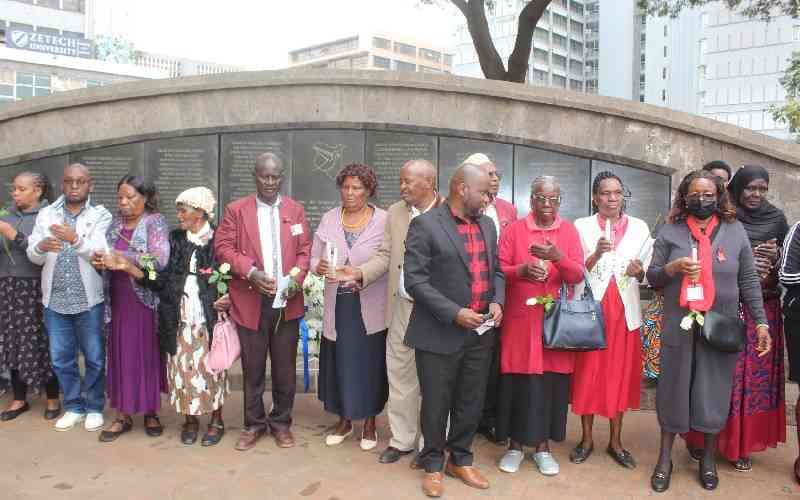We're loading the full news article for you. This includes the article content, images, author information, and related articles.
At a memorial ceremony marking 27 years since the 1998 U.S. embassy bombing in Nairobi, survivors described their ongoing physical and financial struggles and demanded compensation, saying successive governments have forgotten them.

Nairobi, Kenya – August 7, 2025 — In a solemn and emotionally charged ceremony, survivors of the devastating 1998 U.S. embassy bombing gathered at the August 7th Memorial Park in Nairobi to honor the lives lost—and to demand long-overdue justice.
More than two decades after al-Qaeda terrorists detonated a massive truck bomb outside the U.S. embassy, killing over 200 people and injuring more than 5,000, survivors say they are still battling the physical, emotional, and economic aftermath—with little to no support from either the Kenyan or U.S. governments.
Michael Nyakanga, who was working near the embassy at the time of the blast, told the crowd that he permanently lost his hearing and vision. “It’s like the world went silent and dark at the same time,” he said.
Simon Ayienda, who also survived the blast, now walks with difficulty, relying on crutches after sustaining severe leg injuries. “The pain didn’t end in 1998—it began then and never stopped,” he said.
Rose Kwamboka broke down as she described glass shards that pierced her body and the dozens of surgeries she’s undergone since. “It’s been 27 years of pain, not just in the body, but in the soul,” she said.
Michael Macharia, chairperson of the Victims’ Association, decried the failure by both the Kenyan and U.S. governments to fulfill past promises of compensation. “We’ve met ministers, written letters, and knocked on embassy doors. But we’ve been forgotten,” he told reporters.
Many survivors now live in poverty, unable to work due to lasting injuries and trauma. “Some of us can’t even afford pain medication,” said Ali Mwadama, a former embassy driver who now suffers chronic back pain. “We served, we were injured, and we were left behind.”
The U.S. Congress has in the past passed legislation to compensate American victims of overseas terrorist attacks. However, non-American victims—including the majority of those killed and wounded in the Nairobi bombing—remain ineligible under current U.S. law.
In Kenya, successive administrations have expressed sympathy but failed to establish a fund or legislative mechanism to support survivors or their families.
“We are not asking for handouts,” said Macharia. “We are asking for justice—recognition, healthcare, and compensation for the lives that were destroyed that day.”
While the gathering marked yet another anniversary of Kenya’s worst terrorist attack, it also served as a national reckoning—a reminder that terrorism’s human cost doesn’t end with the explosion.
Survivors are now calling on President William Ruto’s administration to take concrete action: to formally petition the U.S. government, and to work with Parliament to create a dedicated compensation fund for victims of terrorism.
As Kenya continues to grapple with security threats from extremist groups like al-Shabaab, the voices of 1998’s survivors serve as a moral compass—demanding not only remembrance, but accountability.
“This isn’t just history,” said Kwamboka. “It’s our lives. And we’re still living with it.”
Keep the conversation in one place—threads here stay linked to the story and in the forums.
Sign in to start a discussion
Start a conversation about this story and keep it linked here.
Other hot threads
E-sports and Gaming Community in Kenya
Active 9 months ago
The Role of Technology in Modern Agriculture (AgriTech)
Active 9 months ago
Popular Recreational Activities Across Counties
Active 9 months ago
Investing in Youth Sports Development Programs
Active 9 months ago